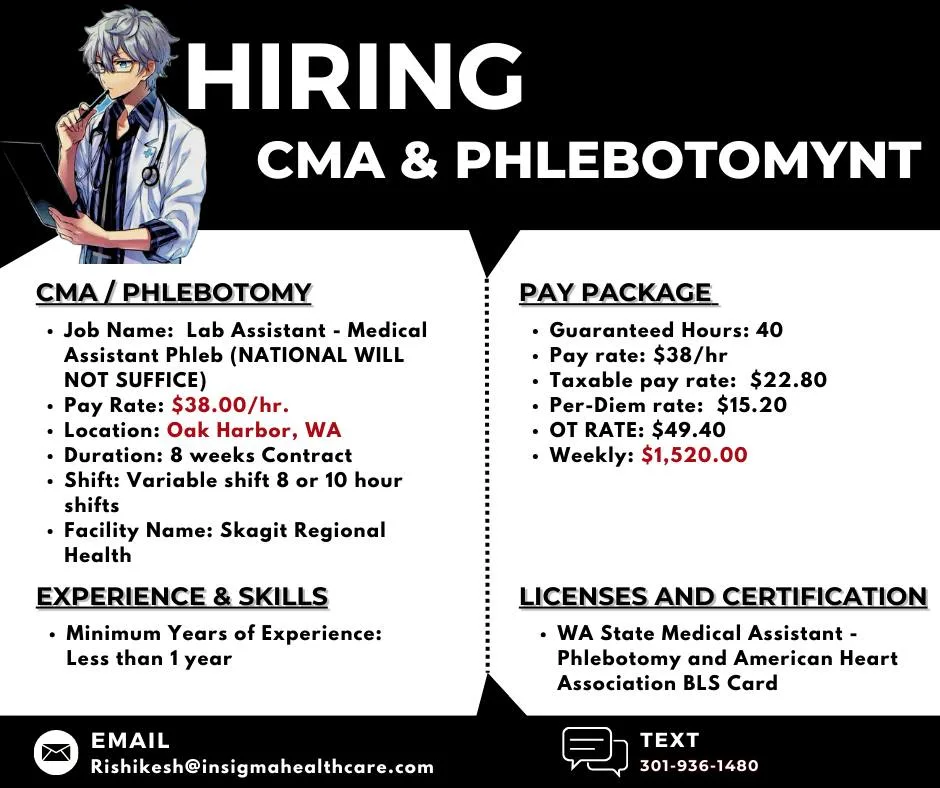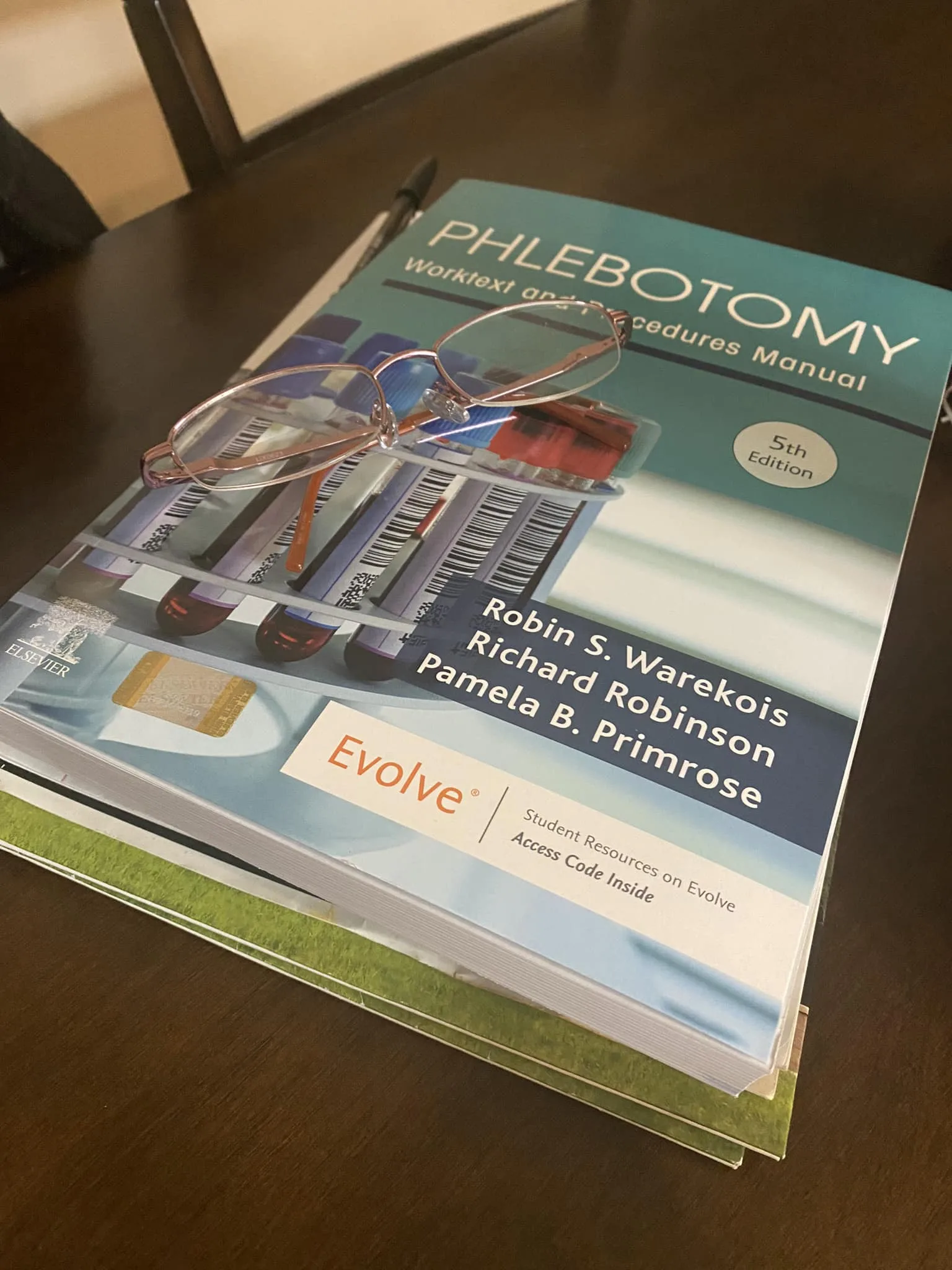Introduction:
Travel Phlebotomist Jobs-Are you a phlebotomist hoping to merge your love of travel with your enthusiasm for healthcare? You’re in luck if so! Jobs as a travel phlebotomist provide a special chance to see new places while applying your abilities to take blood and help patients. We’ll cover all you need to know about travel phlebotomy in this article, including work duties, starting costs, and answers to some commonly asked questions.
What is a Travel Phlebotomist?
A travel phlebotomist jobs is a medical practitioner who visits different establishments, including clinics, hospitals, assisted living facilities, and even mobile blood donation units, to take patient specimens and make blood draws. These people are employed for brief jobs lasting anywhere from a few weeks to many months under contract, usually through staffing agencies.
Travel Phlebotomist jobs Responsibilities:
1.Performing venipunctures and skin punctures to draw blood samples.
2.Labeling and properly storing blood specimens for laboratory analysis.
3.Ensuring patient comfort and safety during the blood collection process.
4.Following strict protocols and procedures to maintain accuracy and quality control.
5.Communicating effectively with patients and healthcare staff.
6.Adhering to confidentiality and privacy regulations regarding patient information.

Benefits of Being a Travel Phlebotomist:
1.Adventure and Exploration:
Travel phlebotomists can work in a variety of environments and locales, which gives them the chance to visit new towns, states, and even foreign nations.
2.Flexibility:
Travel phlebotomists who operate on contract have more freedom to arrange their time and select jobs that suit their interests.
3.Competitive Pay:
Travel phlebotomists generally earn more money than their non-traveling colleagues because of the demand for healthcare specialists in various areas.
4.Professional Growth:
The abilities and expertise of a phlebotomist can be improved by working in a variety of healthcare settings, increasing their marketability and versatility.
5.Networking Opportunities:
Phlebotomists who travel have the opportunity to network with a variety of healthcare professionals and maybe advance their careers.
How to Become a Travel Phlebotomist:
1.Obtain Certification:
Phlebotomists must hold certification from associations like the American Society for Clinical Pathology (ASCP) or the National Healthcareer Association (NHA) in order to work for the majority of businesses.
2.Gain Experience:
It is usually required to have previous phlebotomy experience before moving on to travel work. Building applicable abilities can also be aided by working in a variety of healthcare settings.
3.Research Staffing Agencies:
Seek out respectable employment firms that focus on matching traveling medical professionals with positions. Examine their track record, compensation, and open jobs.
4.Apply and Interview:
Apply to employment agencies, and come prepared for interviews. In your application, emphasize your experience, adaptability, and readiness to travel.
5.Secure Assignments:
After being hired by a staffing company, collaborate with them to identify tasks that fit your interests and schedule.

FAQs:Travel Phlebotomist Jobs
Q-What level of experience is required to work as a travel phlebotomist?
Answer-The majority of employers and employment agencies prefer candidates who have at least one to two years of experience working as phlebotomists in a clinical setting, though specific qualifications may vary.
Q-Do travel phlebotomists get reimbursement for lodging and transportation costs?
Answer-Yes, a lot of staffing companies offer lodging and payment for travel expenses when assigning travel phlebotomists. Before accepting an assignment, it is crucial to ascertain the specifics as they may differ.
Q-Can phlebotomists who travel make their own assignments?
Answer-Yes, travel phlebotomists usually have the freedom to select assignments according to their choices about the kind of healthcare facility, duration, and location.
Q-Are there travel phlebotomy jobs accessible abroad?
Answer- Travel phlebotomists can work abroad on tasks provided by some employment companies. These chances, meanwhile, could be less common and frequently call for extra degrees or certificates.
Q-What difficulties may a travel phlebotomist face?
Answer- Although working as a travel phlebotomist has many advantages, there are drawbacks as well, such as having to adjust to new work environments, establish rapport with strangers as coworkers and patients, and spend a lot of time away from home.
Conclusion:
For healthcare professionals who are looking for adventure, flexibility, and professional progress, becoming a travel phlebotomist opens up a world of opportunity. A fulfilling career that combines a love of travel and healthcare can be achieved by ambitious travel phlebotomists by following the instructions provided in this guide and addressing frequently asked issues and concerns.

1 thought on “Travel Phlebotomist Jobs”